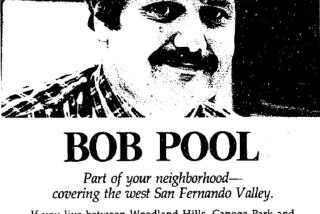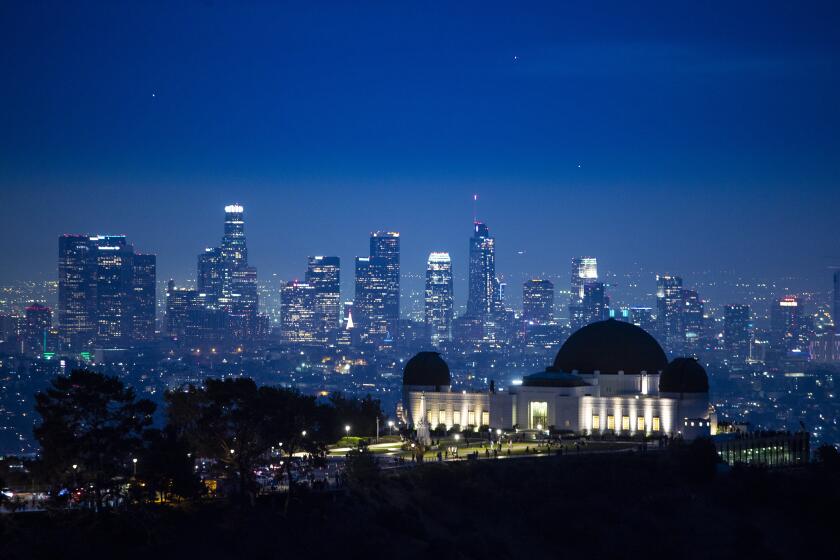Bob Kaufman, One of Original S.F. Beatnik Poets, Dies
- Share via
Bob Kaufman, one of the last survivors of that small cadre of poets who prowled North Beach in San Francisco before it became a tawdry tourist shrine, is dead of emphysema.
Kaufman, called “The Black American Rimbaud” and “The Original Be-Bop Man,” died Sunday in San Francisco. He was 60.
San Francisco Chronicle columnist Herb Caen said Monday that he had Kaufman in mind when he created the word beatnik in the 1950s.
“It was a combination of the beat poets like him and Sputnik (the first Soviet satellite) that typified the era and gave me the word,” the veteran newspaper columnist said by telephone.
Kaufman and such fellow writers as Allen Ginsberg and Jack Kerouac were the enfants terrible who inhabited the coffee houses and streets of North Beach years before Carol Doda made it a mecca for topless bars.
They read their work aloud to passers-by on the street after creating it on dirty cocktail napkins in bars, inspired by cheap wine.
Their subject matter brought them praise from the local literati and arrest by the police.
Kaufman was born in New Orleans to a German-Jewish pool hall operator father and a black Roman Catholic mother.
A handsome, brown-skinned man with curly hair, he liked to note that “my Negro suit has Jew stripes.”
After serving in the merchant marine, he went to San Francisco and in 1959 joined Ginsberg, Robert Kelly and William Margolis in founding Beatitude magazine. They used a mimeograph machine at North Beach’s Bread and Wine Mission to print the first issue of the review.
In the mid-1960s two volumes of his poetry were published--”Solitudes Crowded With Loneliness” and “Golden Sardine.” Translations found him being praised in Europe and compared to the surrealist French poet, Arthur Rimbaud.
In 1960 he and his wife, Eileen, moved with their infant son to New York, where he read his poetry in Greenwich Village clubs. But their interracial marriage brought them into conflict with neighbors.
When Kaufman returned to San Francisco he found that adult theaters had replaced the coffee houses he had once haunted and that “live love shows” made his written obscenities pale in comparison.
Writes in Private
He continued to write, but in private, and do an occasional public reading. In 1981 some friends dug up a batch of old tape-recordings and manuscripts and had them published as “An Ancient Rain.” That same year the National Endowment for the Arts awarded him a $12,500 creative writing grant.
Also that year a reading to commemorate the publication of “Ancient Rain” was staged at the Old Spaghetti Factory, a North Beach landmark.
As Kaufman rose to read from his work he walked to the side of the stage and quietly told his wife: “I keep trying to die, but you won’t let me.”
More to Read
Sign up for Essential California
The most important California stories and recommendations in your inbox every morning.
You may occasionally receive promotional content from the Los Angeles Times.










